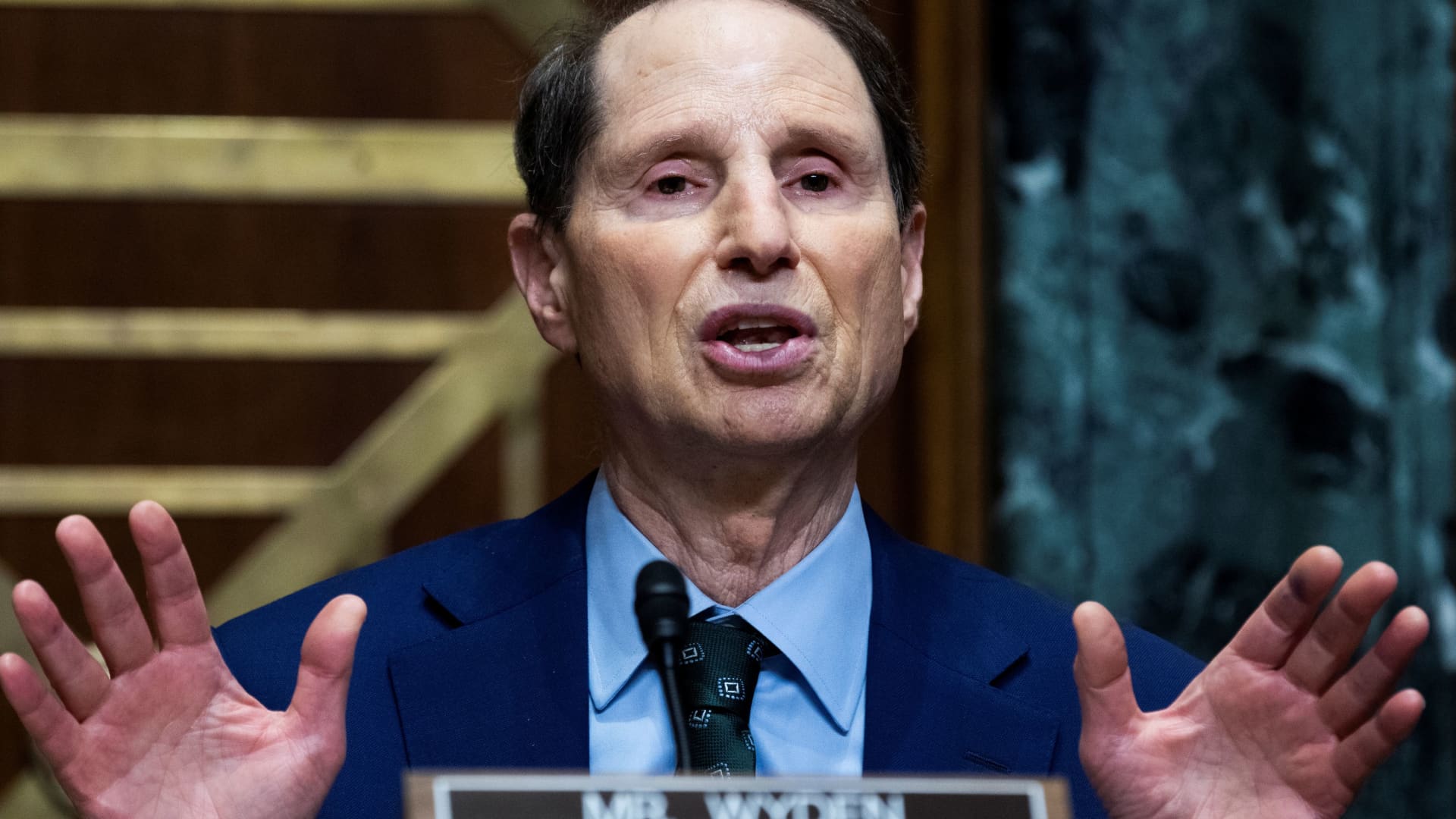Senate Finance Committee Chairman Ron Wyden, D-Ore., questions IRS Commissioner Charles Rettig at a Senate Finance Committee hearing.
Tom Williams | Pool | Reuters
With trillions in tax breaks scheduled to expire after 2025, lawmakers are debating policy priorities that could impact millions of families and small businesses.
Enacted by former President Donald Trump in 2017, the Tax Cuts and Jobs Act, or TCJA, made sweeping tax changes, including temporary provisions that will sunset after 2025 without action from Congress.
The law also permanently reduced the top corporate tax rate to 21%.
Some of the expiring TCJA provisions include lower federal income tax brackets, bigger standard deductions, a more generous child tax credit, higher gift and estate tax exemptions and a 20% tax break for pass-through businesses, among others.
“This will be a make-or-break moment for the federal budget and for America’s middle class,” Senate Finance Committee Chairman Ron Wyden, D-Ore., said in a prepared statement at a Senate hearing on Thursday.
More from Personal Finance:
Here’s the deflation breakdown for August 2024 — in one chart
Homeowners may be overconfident in their retirement readiness
Avoid ‘knee-jerk reactions’ to candidates’ proposed tax increases, advisors say
If temporary TCJA provisions expire after 2025, more than 60% of tax filers could face increased taxes, according to estimates from the Tax Foundation.
But with future control of the White House and Congress uncertain, it’s hard to predict which provisions, if any, will be extended among competing priorities.
In the meantime, lawmakers and organizations are voicing support for certain tax issues before the 2025 deadline.
Small business tax break is ‘crucial’
Many small businesses worry about the so-called qualified business income deduction, or QBI, which is worth up to 20% of eligible revenue, subject to limitations.
The temporary TCJA tax break applies to pass-through businesses, which report income at the individual level. Those may include sole proprietors, partnerships and S-corporations, along with some trusts and estates.
Jeff Brabant, vice president of federal government relations for the National Federation of Independent Business, which represents about 300,000 small and independent businesses, stressed the importance of making the QBI deduction permanent.
“The creation of the 20% small business deduction has been crucial to the survival of small business owners,” he said at the Senate hearing on Thursday.
“Since its passage, the small business economy has endured many issues, including a pandemic that closed many businesses for long periods, record inflation and a historically tight labor market,” he added.
Debate over the child tax credit
Another witness, Indivar Dutta-Gupta, a visiting fellow at Georgetown University and tax fellow at Roosevelt Institute, argued for the child tax credit expansion.
“The child tax credit is one of the single most important ways that we can improve working families after-tax income,” Dutta-Gupta told Senate lawmakers on Thursday.
The American Rescue Plan in 2021 boosted the maximum child tax credit to $3,000 or $3,600 per child, up from $2,000, and sent monthly payments to families.
As a result, the child poverty rate fell to a historic low of 5.2% in 2021, largely due to the expansion, according to a Columbia University analysis.
After pandemic relief expired, childhood poverty more than doubled in 2022, jumping to 12.4%, and then increased to 13.7% in 2023, the U.S. Census Bureau reported.

Concerns over the federal budget deficit
While lawmakers have outlined several priorities before TCJA extensions, negotiations will be difficult amid growing concerns over the federal budget deficit, experts say.
The federal government has already spent more than $1 trillion on interest for its $35.3 trillion national debt this year, the U.S. Department of the Treasury reported Thursday.
“The house is burning down and we’re arguing over the furniture,” Kent Smetters, a professor of business economics and public policy at the University of Pennsylvania’s Wharton School, told CNBC.

